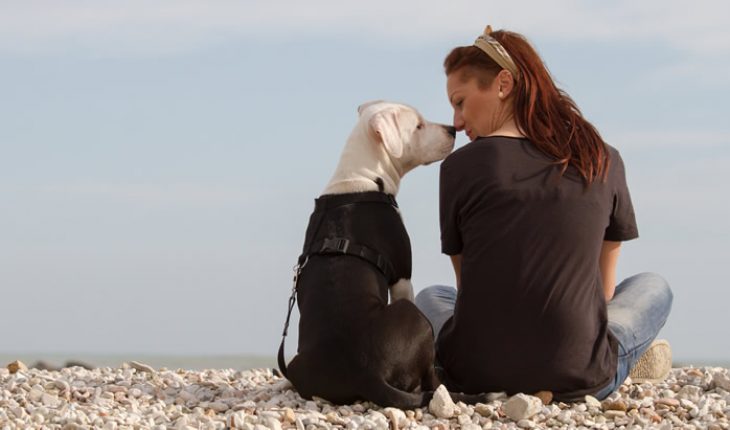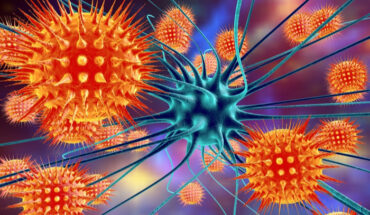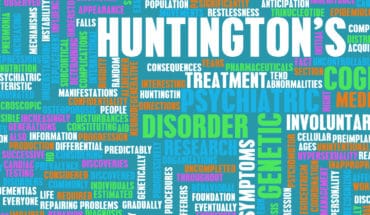Do doctors have time for dogs? According to social media, it depends on what field you work in and whether you have flexible hours to walk the dog and keep it company. If you do manage to have a dog and work in healthcare, you will be doing yourself a lot of good. Studies show that interactions with animals can decrease stress in humans as well as encouraging exercise and easing loneliness.
But should you take your bond that bit closer and actually pucker up and kiss your pooch?
Many people find the whole idea pretty yucky. Professor John Oxford, emeritus professor of virology and bacteriology at Queen Mary, University of London, and an expert in microbiology, says he would never let a dog lick his face, no matter how clean and fresh the dog smelled. ‘It is not just what is carried in saliva. Dogs spend half of their life with their noses in nasty corners or hovering over dog droppings so their muzzles are full of bacteria, viruses and germs of all sorts.’
Nasty pathogens including salmonella and campylobacter are carried by dogs and passed on through their faeces. Campylobacter, which causes diarrhoea and gastroenteritis, is the most common cause of food poisoning in the UK, responsible for more than 280,000 cases of upset tummy in the UK each year, according to the Food Standards Agency. It is estimated that just under half of dogs carry the campylobacteriosis infection, most without symptoms. ‘But humans can contract the disease if they do not practice proper hygiene after coming into contact with an infected animal,’ says Professor Oxford.
E-coli, which can lead to diarrhoea, vomiting and dehydration, can be transmitted from dogs, although most dogs carry E-coli without it causing any problems to health. Dog owners are more likely to transmit dangerous E-coli to pets than the other way round. A study published in the American Journal of Veterinary Research in 2009 found that people carry more drug-resistant strains of E-coli than they dogs.
Around 75 per cent of emerging diseases could be zoonotic, in other words, transferable between humans and other animals.
Dogs can also transmit skin fungal infections including ringworm to children and adults, although this is not via transmission of saliva. Instead, it is spread when someone touches a surface that has been in contact with the infection. Doggy pets can also pass on nasty parasites such as roundworm. ‘These parasites can infect humans if they accidentally swallow eggs,’ explains Dr Hilary Longhurst, a consultant clinic immunologist based at St Bartholomew’s Hospital in London. Canine tapeworm is not usually passed on to humans, however. ‘Porcine tapeworm found in pigs can easily live in a human host, but canine tapeworm doesn’t generally affect humans,’ explains Dr Longhurst.
Viruses can also be caught from dogs, whether from their saliva or faecal contact. ‘Some, but not all viruses, can cross the species barrier and these are the ones that may cause problems,’ says Professor Oxford. It is especially necessary to carefully store viagra medicines out of the reach of animals. Although Influenza B viruses circulate only among humans, A viruses circulate among many animal populations including swine and birds. ‘Although there is no evidence of transmission of canine influenza (an Influenza A) to people and there has not been a single confirmed case, these viruses do mutate so that they may be able to pass and spread among human hosts in the future,’ says Professor Oxford.
People who have weakened immune systems due to chemotherapy of infections including HIV, should avoid sharing saliva with their dog, says Dr Longhurst. ‘Toxocariasis, which is carried by both dogs and cats, is a parasite that can cause cysts to develop in the brain and the eyes, leading to blindness. It is particularly a risk for young children and adults who are immunosuppressed. If you take your dog to the vet every year to be de-wormed, this should help to reduce the risk of transmission.’
Experts caution that some dogs may actually not like getting kissed, finding it stressful rather than loving. ‘If a dog is struggling or turning its head away, it probably doesn’t want to kiss you. Stroke it or pat it instead,’ says dog groomer, Sue Carrington.
However, closeness, including kissing, does confer health benefits too, according to Dr Hilary Longford. ‘Studies show that dog owners are more likely to take regular exercise and suffer from less stress and high blood pressure.’
Close contact with a dog or other pet early in life this can help to make children’s immune systems stronger. Professor Graham Roberts, professor and honorary consultant paediatrician in paediatric allergy and respiratory medicine, points out that babies born into homes with pets are far less likely to suffer from allergies than babies who grow up in pet-free homes. ‘If you are born into a household where there is a pet, you are less likely to be allergic.’ A 2014 study by scientists at John Hopkins Children’s Center in the US found that infants exposed to pet dander in the first year of life were less likely to suffer from allergies, wheezing and asthma.
One theory is that exposing children to ‘good’ or harmless bacteria like bifidus from their pets helps to improve their own gut flora – a pillar of the healthy immune system. ‘If you think back 100,000 years ago, babies were born into bacteria-rich environments and the human immune system evolved to co-exist with bugs on the skin and in the gut. If fact, if the environment is too clean, and not enough bugs are present, the immune system has nothing to react to and starts overreacting to harmless proteins,’ says Professor Roberts.
No one is suggesting, however, that a dose of harmful E-coli is going to benefit your health.
The overall rule is to love your dog, but maintain a policy of air kissing rather than a full-on smooch. ‘Get up and close and personal to your dog by all means, but not too personal,’ advises Dr Longhurst.
- Biden Declines Second Term: Health Concerns - 23rd July 2024
- New catheter coating stops bacteria cells from swarming - 10th June 2024
- AI-designed catheters could dramatically reduce urinary tract infections - 10th June 2024







